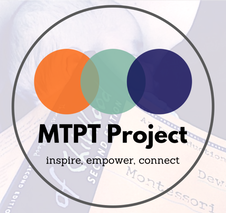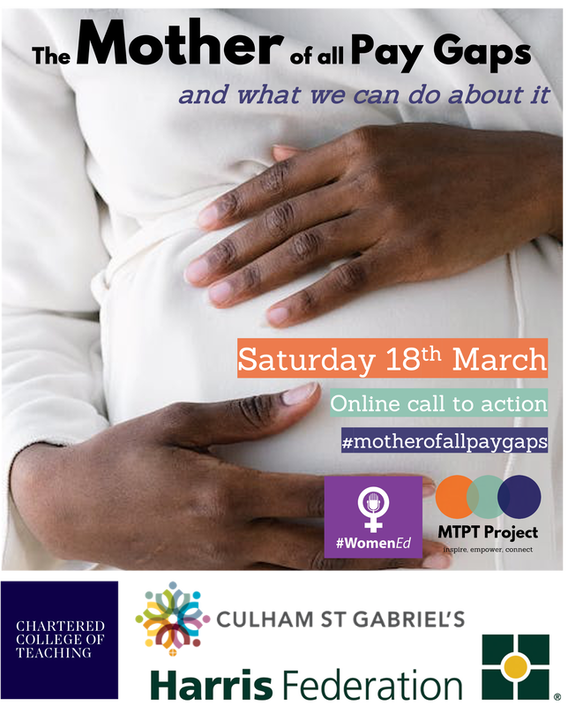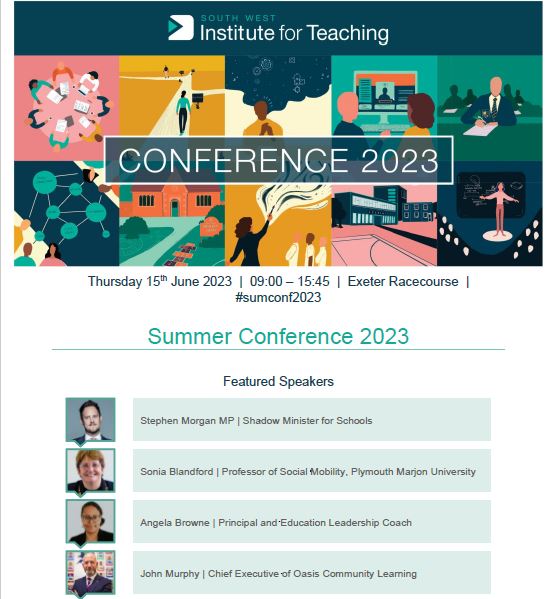|
28/2/2023 0 Comments Introducing the Leading Schools South West (LSSW) Leadership Study Visit Programme“Brilliant thinking and learning opportunity that we all need sometimes to reflect and get perspective on what we are doing already.” SWIFT is proud to be working with Leading Schools South West (LSSW) on their soon-to-be launched Leadership Study Visit programme to national high performing Schools and Trusts. This builds on the successful LSSW/ SWIFT partnership of supporting professional development for school leaders across the South West though the programme of National Professional Qualifications (NPQs). The Leadership Study Visit programme aims to:
At the beginning of February, a group of 14 school leaders from a variety of contexts in Devon and Cornwall participated in a pilot programme visit looking at Implementation Coaching and a programme of group coaching to support leadership development with a view to the implementation of change during the remainder of this academic year. Accompanied by SWIFT Director, Martin Smith, the group visited Reach Academy, Feltham and King Solomon Academy, two outstanding, forward-thinking 2 - 18 years schools in London and met with school leaders, teachers and students, and spent time in lessons. The participants valued the opportunity to network and strengthen links and relationships; collaborate, discuss, reflect and share ideas and valued the benefits of observing good practice in action in the different and contrasting schools’ settings and discussions with school leaders about their work and leadership journeys in the context of their own settings. For some delegates, it provided an understanding of the 2 - 18 years model in action. In particular, the study visit facilitated reflection on the schools’ outstanding provision, different curricula, challenging cohort characteristics and catchment areas. The LSSW/SWIFT participants considered and learned from both similar and different systems, approaches and values that helped them to gain a broader insight into education and ultimately, they benefitted from the joined-up thinking, enhancing and reinforcing their own professional development to date. Participants enjoyed the dedicated time to focus and reflect purposefully and identify particular strands, strategies and how improvements could help to refine and strengthen their own current practice and understand how getting the basics right, i.e. consistency and routine, can work in practice. The clear vision articulated by the visit school leaders with plenty of opportunities to ask questions when visiting classrooms was valued and participants commended the cradle to career pathway and holistic provision at the Reach Academy. Both schools were praised for their students. Of significant note was praise for King Solomon Academy’s talented and articulate students, who spoke with confidence and passion and love for their school and were an inspiration for their ambition and work ethic. Participants also commended the aspirational children at Reach Academy and the sharp focus on community and they liked the clearly embedded routines and habits and strong school brand with values and clear and explicit purpose. The clear explanation of the model of driving impactful teacher development through consistent and professional expertise was praised at the Reach Academy. For example, morning practice and fortnightly School Leadership Team (SLT) drop-ins and instructional coaching, rather than Faculty Meetings. Participants also liked the approach to Teaching and Learning through explicit Doug Lemov “Teach Like a Champion” strategies, resources and language and observing the coaching model in action. It was reassuring for delegates to understand that using research works through a consistent approach delivered by enthusiastic staff, plus the ability to backward plan and maximise the use of subject expertise. It was also insightful for the participating school leaders to reflect and compare curriculum similarities and differences with their own school situations. At the Reach Academy, the participants found the Key Stages 1 and 2 classes to be inspirational, liked the strong practice in Read Write Inc (RWI), persistent focus on reading across the school/the curriculum, the Early Years degree model and phonics teaching (and how it could be used in secondary schools), the set up for the reading book club lessons and Curriculum Design and use of booklets, and how this sits with effective scaffolding. At King Solomon Academy, participants commended the relentless ambition towards university access for all and liked the tightness of centralised systems (including lesson planning and resourcing to allow for "intellectual preparation). Whole school behaviour management strategies (including residentials across all year groups and "payslips") were also commended and the clearly described and explained SEND perspective. Notably, the visit provided refreshing time away from “the daily ebb and flow of school life,” with time to think and reflect strategically. SWIFT and LSSW thank both the Reach Academy and King Solomon Academy for hosting the visits and for their openness and offers to share resources. Look out for information about the programme on our SWIFT CPD Programmes Calendar. Report by Jude Owens, PA to the SWIFT Executive Team
0 Comments
24/2/2023 0 Comments SWIFT Events Newsletter | Issue 22 This issue includes a featured article and some highlighted programmes, courses and events from our partners to support your professional development and enhance the work of your school. Simply click on the booking link, to the course or event you are interested in, to get more details or book straight on! Featured in this issue we have: Curriculum Forum | FREE to SWIFT Members SWIFT Curriculum Forums are termly meetings that bring together middle and senior leaders from diverse educational settings to examine latest approaches to curriculum. Keynote Speaker: Mary Myatt | Refining the Curriculum SWIFT Summer Conference #SumConf2023 Taking place on Thursday 15 June 2023 at Exeter Racecourse, the amazing line-up of speakers, including Stephen Morgan MP, Shadow Schools Minister, reflects our vision to create world-class opportunities for leaders to learn, develop and connect. We are passionate about enabling schools in the South West to have access to the best of regional, national and research as we know many school leaders experience varying degrees of rural and coastal isolation. Highlighted Programmes:
SWIFT Summer Conference #SumConf2023 Thursday 15 June 2023 | 0900 - 1545 | Exeter Racecourse We are delighted to launch early details of the SWIFT Summer Conference #SumConf2023 when the following line-up of speakers will be leading the discussion on educational topics of the day:
+ More speakers to be announced soon! New this year! A "Question Time" style session. Watch out for more details. This year's Summer Conference reflects our vision to create world-class opportunities for leaders to learn, develop and connect. We are passionate about enabling schools in the South West to have access to the best of regional, national and research as we know many school leaders experience varying degrees of rural and coastal isolation. We also know your time as leaders is precious and funding limited in schools. Our conference programme will provide choice so that you can select what best meets your interests and priorities. And because SWIFT is not-for-profit, we can offer this high quality experience to members for £80 and £120 for all other colleagues. Great news too if you are one of the 800 leaders currently training on one of our NPQs with LSSW: you are entitled to a 50% discount. A full conference programme will be published in March, but this is an early opportunity to book your place. You can read about our previous SWIFT Summer Conferences HERE Make #SumConf2023 on Thursday 15 June 2023 a date for your diary! Martin Smith, Director of SWIFT This event will be supported by our valued SWIFT sponsors, Goosemoor Educating, Lyfta and others.
10/2/2023 0 Comments SWIFT Events Newsletter | Issue 21 This issue includes a featured article and some highlighted programmes, courses and events from our partners to support your professional development and enhance the work of your school. Simply click on the booking link, to the course or event you are interested in, to get more details or book straight on! Featured in this issue we have: SWIFT Summer Conference #SumConf2023 We are delighted to launch early details of the SWIFT Summer Conference #SumConf2023, taking place on Thursday 15 June 2023 at Exeter Racecourse. The amazing line-up of speakers, including Stephen Morgan MP, Shadow Schools Minister, reflects our vision to create world-class opportunities for leaders to learn, develop and connect. We are passionate about enabling schools in the South West to have access to the best of regional, national and research as we know many school leaders experience varying degrees of rural and coastal isolation. Curriculum Forum | FREE to SWIFT Members SWIFT Curriculum Forums are termly meetings that bring together middle and senior leaders from diverse educational settings to examine latest approaches to curriculum. Keynote Speaker: Mary Myatt | Refining the Curriculum Highlighted Programmes:
Already February, and in this latest issue, ESW Associate & Strategic Leader of Teaching & Research Schools | Education South West, Roger Pope CBE considers the case of Beth and her experience with her school leadership that contrasts with our SWIFT schools and partners: "By engaging with professional development, you are exploring the evidence-based principles of good teaching rather than slavishly following a mantra."
Read the entire feature in the newsletter link below. Find out about our DEI work with Diverse Educators, plus the recent History Masterclass on Revision Strategies led by Carmel Bones. And, if you have yet to encounter The MaternityTeacher PaternityTeacher Project you can read an interview with the founder and lead, Emma Sheppard. Discover our sponsor, Atomi's curriculum-aligned content library ideal for GCSE students and we introduce the National Centre for Excellence for Language Pedagogy (NCELP). 1/2/2023 0 Comments Interview with The MaternityTeacher PaternityTeacher Project Founder and Lead Emma Sheppard “The MTPT Project wants to support parents in balancing being a teacher with being a parent in their life plan." Emma Sheppard has a lot of be proud of. As well as an experienced Middle Leader and Teacher of English, she is mum to two young children under the age of seven, and also the founder and lead of The Maternity Teacher Paternity Teacher Project (MTPT). As the UK’s only charity working on behalf of parent teachers, The MTPT Project provides support for teachers as they become parents and continue to combine work and family. In December 2022, The MTPT Project were proud to publish “A Guide to Teaching, Parenting and Creating Family Friendly Schools” that provides guidance for teachers and school leaders who are thinking about starting a family, to expecting a baby through to taking parental leave, then returning to work, and what a family-friendly school looks like and returning to the classroom after a career break, plus ideas on how to contribute to education if colleagues feel teaching is not for them after they become a parent.  1. How did you come to launch the Maternity Teacher Paternity Teacher Project? I had been working as a lead practitioner in a Harris Federation school in South London serving a disadvantaged community. Teach First trained, I’ve always been ambitious and a career teacher is part of my identity. It was when I was on my first maternity leave and everyone told me to stop thinking about teaching during this time off with the narrative that I would not be able to do any professional work at the same time – including reading a book – and that I was unlikely to get out of the house and put my thoughts together in a cohesive way and instead, the strong narrative was to treasure the precious moments with my baby defined as “good motherhood.” This was not a definition that matched me. Hence, I started blogging about my professional development activities - whether online or visiting a museum, for example; or discussions with friends over coffee across the wider working sector, including charities, with some friends working for the Teacher Development Trust. I knew that I enjoyed using my brain. But I also knew the more I looked into it, the more I perceived that maternity leave could present a barrier to my career progression. Whereas my vision was that it could be an enriching time for my professional and personal development, networking and growth and I believed that it could benefit my development to be an effective leader. I decided to set up a Twitter handle and invited similar thinking from other parents to network and get on board and share experiences. This was partly for my wellbeing and mental health as motherhood was still (partly) scary for me and it was important to me to maintain something I could understand, feel confident about and was fulfilling. It was also a way of grounding myself during this unknown experience that new parents can sometimes feel they are failing at – as well as part of the feminist battle! I returned to teaching after six months off with my first baby and I was empowered that it was my choice about when it felt right to be back in the classroom. Meanwhile the positive online community was growing and I began doing in-person coffee mornings and engaging in regional networks that explored coaching plus regional representation with volunteers who were thinking the same way. For my second maternity leave in 2018 the network was firmly established and I was still the only voice speaking in this space with lots of revelatory moments from new parents who were pleased to have found me and our group and were encouraged and empowered by the network and gratified that it was “ok” for them to continue studying for a qualification, reading and using their professional head whilst on parental leave. This gave me the courage to take the next steps for The MTPT. By this time, I was getting into the bigger literature about gender equality and the gender pay gap, teacher mental wellbeing, and recruitment strategies and I was looking to the bigger picture to provide a solution. A notable fact was that there was not much data. However, in 2016 the Policy Exchange published “The Importance of Teachers” which, found that women aged 30- 39 years - a fifth of the teaching workforce – are the most likely group to leave the profession after retirees. But there was no evidence that this stark fact had been followed up. On this basis I decided to start my own research project, “Women Aged 30-39: why are they the largest demographic to leave teaching every year?” I ended up with more than 1000 responses from women who had stayed and those who left the profession. We were neither academics nor attached to a university or research organisation. I called it “Doing the Washing Up Badly.” The aim was to do something to draw attention and give voice to our community, rather than nothing, with the hope that someone more serious than one Lead Practitioner with a tiny baby, would take it further and do it properly. By 2021, from our huge data set, 70- 80 qualitative interviews were completed into why women were leaving and what was helping them to stay. Motherhood had a lot to do with it. Amazingly, The MTPT Project was still the only organisation giving voice to this research, despite lots of interest in wanting to find out more. Far from doing the washing up badly, we were still the only ones keeping the plates clean! By this time, The MTPT Project was gaining momentum with coaching and regional coffee mornings and speaking at WomenEd events and the team was growing in terms of volunteers and coaches, plus a big research base. I returned to school full-time seven months after my second baby and two years later I decided to work to four days in order to work on the MTPT Project on my free day. But it was when we relocated as a family to France in 2021 that I decided to devote myself full-time to The MTPT Project and began organising return to work workshops and training for schools for Line Managers who were welcoming back colleagues, using the research to refine some of the processes to ensure they were fit for purpose. The MTPT Project full-time was born.  2. Coaching is clearly a key dimension of The MTPT Project. How have you developed this work? I have always personally benefited from coaching through Teach First (TF), which has been profoundly helpful in supporting me when I was pregnant and in some difficult circumstances when solutions seemed impossible. I like working on the premise of empowering individuals to find solutions. It was powerful for me that during my maternity leave everyone was telling me what to do as a new mother. Whether to breast feed or not, the ideal height, weight etc of my babies. There were so many instructions. When life is changing and new parents do not always know who they are, and coaching asked, what does the parent want and provided a powerful space, time and attention to talk through what they needed and cut through cultural, social and family narratives. We now have six one-to-one and group coaching programmes: Return to Work, Transition, Sustain and Grow Group, Parental Leave and Group Coaching and also The MTPT Project Accreditation designed ourselves that certifies teachers completing any personal development. In addition, there are podcasts, opportunities to visit sites of interest – professional development that might go unnoticed or unrecognised and which should be acknowledged. The costs are manageable and the cohort group coaching feeling is lovely. 3. The blogs are an uplifting feature on your website. What has been the feedback to The MTPT project? It is interesting because our activity is online due to the geographical spread of our audiences and knowing that babies can trap parents inside the house, and can sometimes mean the full impact of what we do is not always seen. We keep posting and what is lovely is the chance meetings that support the work of The MTPT Project. I met a lady at a conference. I did not know who she was, but she told me that our blog posts had given her the courage to apply for a Head of Year post on four days a week and to work flexibly and that she was the first middle leader to work in this way. This was an example of how it is important for us to role model. Case studies and blogs give permission to someone else to do what someone else has done. Other examples. New parents who wish to take extended periods of parent leave but do not know anyone else who has done it. We can cite examples of current Headteachers or school leaders who wish to be a Headteacher, but are considering parenthood in five years’ time. This is permission-granting through role models and case studies with The MTPT Project providing powerful inspiration and signposting. There is important research into leaders who did not have any role models when they were becoming parents or trying to return to work as parents, or wanting to do something different with their life. Relationships have broken down from the stress of teaching and un-nuanced role models who wish they had spent more time with their children. Teachers who were upset because they were not allowed to attend their children’s’ special assemblies. SLTs with no women and the lack of role models. Fathers who want to do things differently as a parent. We have a podcast voicing experiences from nine SLT members; all of whom took periods of maternity leave and who answer key questions in response to explicit research that says women have no role models. 4. Looking ahead, what is your vision for the future of The MTPT? We are very committed to the products that we offer and how we help schools and are keen to continue to raise our profile as there are still lots of schools yet to hear about us and who need us and would benefit from our community, in the same way that they know about teaching unions, School Direct, and WomenEd etc. Mindful that half our teachers are parents, we would like to be a bigger voice supporting working conditions, working alongside the unions and Department for Education. We are keen to drive more systemic change so that parents feel courageous and schools are more solution-based to ensure greater adaptability and better systems for career choices. Gender equality, family-friendly schools and sustainable career choices are all at the heart of what we do. We want to support parents in balancing being a teacher with being a parent in their life plan. Ultimately, The MTPT Projects seeks to ensure parents can continue in the profession so that education benefits from their experience and passions as a teacher and parent. Interview by Jude Owens, PA to the SWIFT Executive Team  Booking now open for The MaternityTeacher Paternity Teacher Project 2023 Conference: "The Mother of all Pay Gaps and what we can do about it." Saturday 18 March 2023 | 0900 - 1600 | Online Join The MTPT Project and WomenEd for this FREE online conference. Benefit from a day of sessions that identify the motherhood penalty in education, how it contributes to the gender pay gap in schools, and the concrete actions we can take as individuals, school and systems leaders to tackle it. The MTPT thanks their generous sponsors for supporting this event. |
SWIFT News
|
SPONSORED BY
Join us, be a part of our SWIFT community |
© COPYRIGHT 2022 SOUTH WEST INSTITUTE FOR TEACHING SWIFT. ALL RIGHTS RESERVED | Website by brightblueC
VIEW OUR PRIVACY NOTICES | VIEW OUR COURSE T&CS
VIEW OUR PRIVACY NOTICES | VIEW OUR COURSE T&CS








 RSS Feed
RSS Feed





